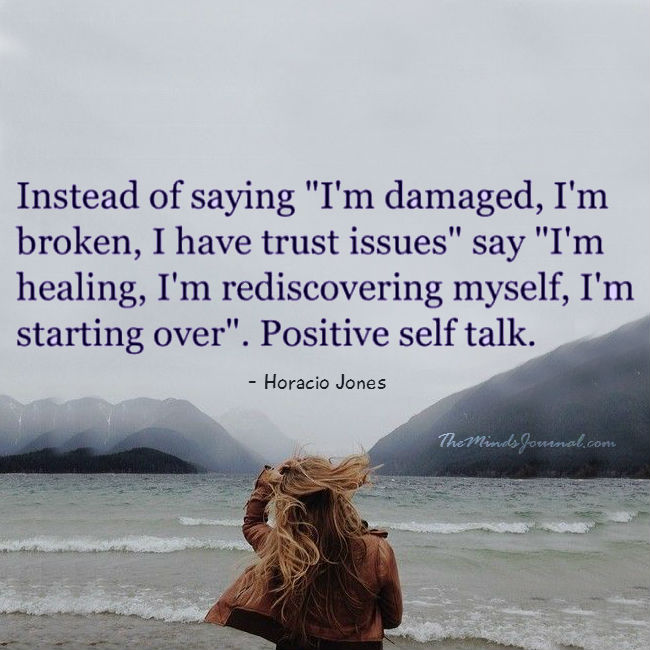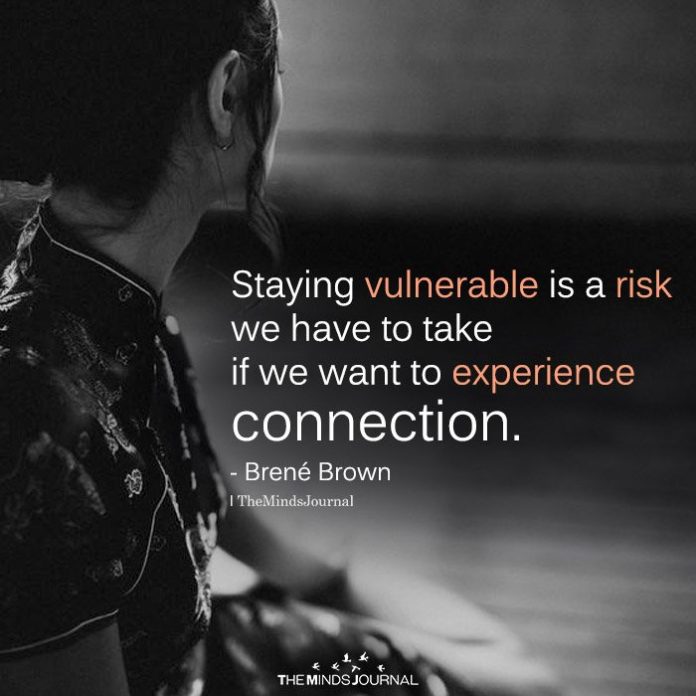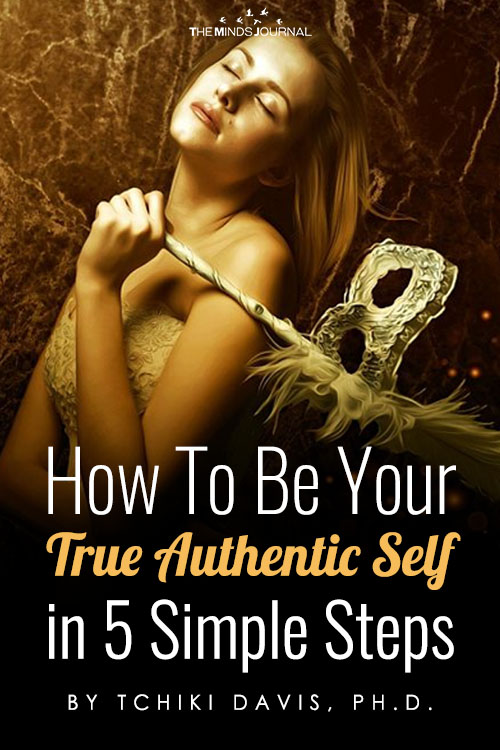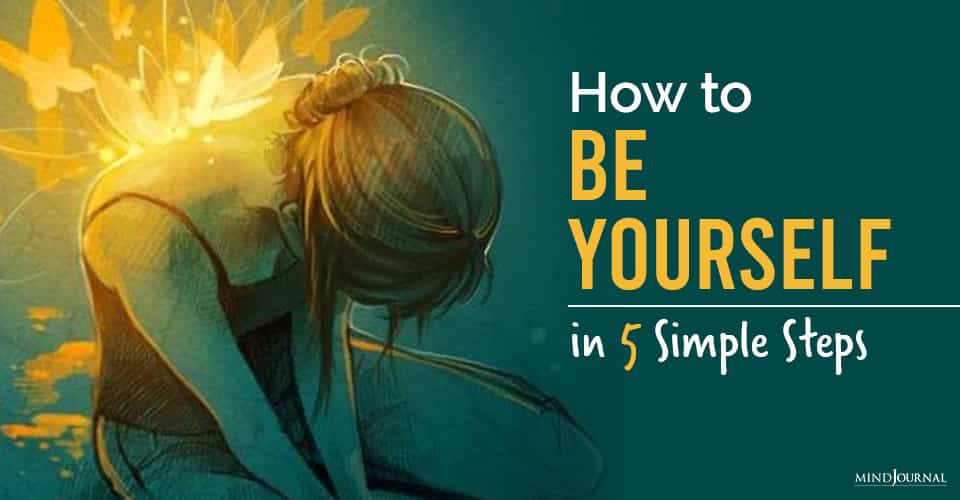To be yourself in a world that is constantly trying to make you something else is the greatest accomplishment. – Ralph Waldo Emerson
Being your true authentic self takes a lot of courage but it is totally worth it. Working on feeling comfortable in your own skin can be hard sometimes because our inner critic undermines us, but once you learn to express yourself in a more authentic way, you will earn the respect of others and will be able to develop honest relationships.
Our daily lives consist of absorbing unrealistic expectations from media for what we should look like, how our romantic relationships should be, and even what we should be doing between the sheets with our sexual partners. It’s no wonder that our social media profiles are merely presentations of who we think we should be and not reflections of who we really are.
We’re just trying to fit in, be liked, and be accepted by other human beings — no one would possibly like us for who we really are, we might think.
So how do we get past all this and learn how to just be ourselves?
In my new book, Outsmart Your Smartphone: Conscious Tech Habits for Finding Happiness, Balance, and Connection IRL, I talk a lot about how to be ourselves now that we live in a hyper-digital world. These days, our personal relationships are so important to us that doing anything which could threaten those relationships can feel extra scary. We might already feel lonely and disconnected — why on earth would we want to be ourselves if that might chase people away?
Revealing our true selves can feel like a huge risk now that we live in a world where everyone is presenting themselves as perfect, attractive, and happy online.
What if we don’t feel like we are any of these things? Will being who we really are scare people away? Will everyone just suddenly abandon us?
Being yourself can feel risky, and it is. There may be people in your life who have fully bought into the idea that being a certain way and presenting a certain image is all that matters. If you start showing your true self, these people may indeed treat you differently, and that’s a risk.
But if you have to hide who you really are to be around these people, you can end up feeling lost, lonely, or even worthless, because you are basically telling yourself that who you really are isn’t OK. And other people don’t ever get to know who you really are, so you don’t feel as strongly connected to them either.
Read 12 Self-Care Tips to Take Better Care of Yourself
So rather than letting fear drive our self-expression, we need to learn how to accept ourselves, so we can truly be who we are.
Here are the 5 things to do, to be yourself:
1. Accept yourself.
Media (and social media) can make us feel unattractive. Models and actors are attractive, of course, but now even our friends on social media have photoshopped their pictures to perfection, often making us feel unattractive in comparison.
Lots of evidence shows that the more media we consume with attractive people in it, the worse we feel about ourselves. But because we don’t want to give up our addiction to media — an addiction that provides us with companionship, entertainment, and so many good memories — we don’t quit. It subtly tells us we’re not good enough so many times that we start to believe it’s true. Media wouldn’t lie to us, right?
Read Love Yourself Through: Why Empathy Must Start With You
Wrong! Media sets the bar impossibly high, so no matter how hard we try to improve ourselves, we always feel like we’re falling short. We don’t know our worth.
2. Identify negative self-talk.

One of the ways we can better accept ourselves is to identify and challenge our negativity. We always have these inner monologues chirping away at us, interpreting the events happening all around us. For many of us, this self-talk is mostly negative. For example, we might think, “I’m ugly” or “My life sucks,” when we watch TV shows or look at our social media. Or we might think, “He hates me,” if a friend posts a picture of a fun time that we weren’t invited to.
We could stop some of this painful ruminating by simply limiting our media and social media time, but we also need to practice stopping the negative self-talk.
Read 6 Negative Words That Cripple Your Self Esteem and Empowering Words To Replace Them With
3. Celebrate your strengths.
In addition to negative self-talk, we can also easily slide into the habit of focusing on our weaknesses instead of celebrating our strengths. We all suck at things. In fact, we all suck at most things, and that’s OK. But it can really get us down when we focus on these things instead of focusing on what we’re good at.
For example, I sometimes put myself down, because I’m not great at maintaining friendships long-term. It’s true. I’m an introvert. I don’t like texting and often feel shy about asking people to meet in person. But if we get down on ourselves regularly for the things we’re not good at, it’s going to be hard to like ourselves as much as we could.
So, in addition to trying to improve our weaknesses, we have to remind ourselves of what we are good at. If we think about it, each of us have many strengths, even if these strengths seem small and insignificant. By identifying them we realize, hey, our weird, one-of-a-kind self is pretty awesome after all.
4. Express yourself
What else stops us from being ourselves? Mostly, it’s our fear of what other people might think about us if we showed our true selves. For example, maybe our friends all have the same opinion about a political topic, so we decide not to share our different point of view.
Maybe our friends like a particular genre of music, and so we decide not to talk about the kinds of music we like. Or maybe our friends enjoy dining at fancy restaurants, so we decide not to invite them to our house for the cozy dinner we’d really prefer. We hold back because we are afraid of the possible consequences — consequences like them thinking we’re weird or ditching us.
It’s human nature for us to want to show the best sides of ourselves. And holding back our opinions occasionally is a necessary part of life — in fact, it can help make our relationships a bit easier and more enjoyable. As social beings, we have all navigated the challenge of balancing self-expression with social harmony in our face-to-face interactions.
But now, in the technology age, we are having to navigate this challenge in a whole new environment — on the Internet, through text, images, or video. And we have no model to follow, so we do what everybody else does. We show only a sliver of who we really are — the best sliver of ourselves.
We don’t share everything about ourselves — in part, for good reason. We don’t want everyone we’ve ever met to know every little thing about us, and that’s OK. Where we get into trouble is when our self-expression becomes a performance designed to evoke some kind of response in others. The result? Few of the people in our lives know who we really are deep down, and we might even start to forget who we really are deep down.
So how do we know whether our expressions have become presentations for an audience rather than creative expressions of who we really are? Well, we might start to wonder: Who is that person we pretend to be on social media — the one with the perfect clothes, photoshopped body, with the biggest smile you’ve ever seen?
Read How to Love Yourself More (Even When Others DON’T)
Or we might start to notice that we post pictures online not to show to others, but to make others think something specific about us. We’ll have to start paying attention to whether we are acting in order to be ourselves, or whether we are putting on a show.
5. Show your vulnerability.

Another important step to being ourselves is showing our vulnerability. Most of us, myself included, don’t really want to show the parts of us that we don’t like — the parts that scare us or make us feel ashamed, embarrassed, or weak. It’s not so easy to share these parts of ourselves.
We worry — What if others change their opinion of us, reject us, or abandon us?
It’s scary to be so openly vulnerable — it’s like opening up an old wound and telling others right where to poke you. But to fully be ourselves we have to be our full selves. We can’t just pick and choose the parts that we like; we can’t just show the manicured, photoshopped version of ourselves. So we have to be vulnerable from time to time.
To start, we could practice being more vulnerable on social media. I’ve seen some great examples of this on my social media recently. For example, some people I know posted about having herpes and IBS. Another person I know posts when she’s feeling sad and wants to connect. And tons of women (and some men) have now posted their personal stories about sexual harassment with the #MeToo and #WhyIDidntReport hashtags.
All of these are examples of people sharing stories about themselves that aren’t exactly fun to share — their emotions and their stories make them vulnerable.
If we’re more comfortable, we can choose specific people or opportune moments to show our vulnerability. Whether we share our personal stories with everyone or just a few people we feel close to is up to us, the goal is to be able to be all of yourself, at least some of the time.
Written by: Tchiki Davis, Ph.D. Originally appeared on: Psychology Today










Leave a Reply